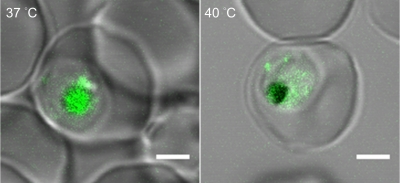
A recent collaborative effort between the Derbyshire lab at Duke and Prof. Jacquin Niles’ lab at the Massachusetts Institute of Technology discovered a mechanism that helps Plasmodium falciparum parasites survive hostile thermal conditions recapitulating malaria fever. The study shows that P. falciparum, the deadliest of the human malaria parasites, uses the lipid PI(3)P and heat shock protein 70 to stabilize the parasite’s digestive vacuole under heat stress. Read more about their discovery of this parasitic mechanism that facilitates survival in eLife, available here. A feature in Duke Today highlights the lab's discoveries.